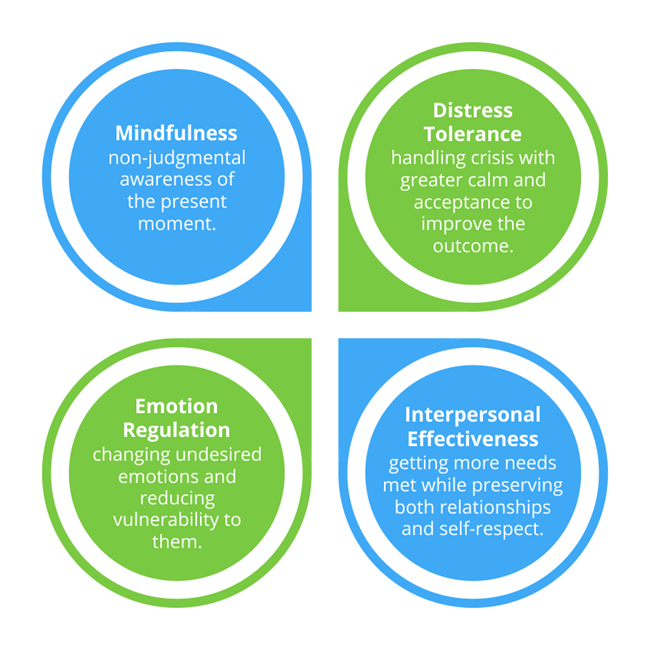Dialectical Behavioral Therapy (DBT)
What is Dialectical Behavioral Therapy?
Dialectic Behavioral Therapy, or DBT, is a form of CBT in which the goal is to help individuals learn how to cope with stress, regulate their emotions, and improve their relationships with others all while focusing on living in the moment and remaining present. DBT has been shown to be effective for several types of mental health concerns, particularly those of individuals who are exhibiting self-destructive behaviors.
What mental health concerns is DBT commonly used to treat?
The most common mental health concerns that DBT is helpful in treating are:
- Borderline Personality Disorder
- Post-Traumatic Stress Disorder
- Substance Use Disorders
- Eating Disorders
- Attention-deficit/hyperactivity disorder (ADHD)
- Bipolar disorders
- Depression
- Anxiety
- Obsessive-compulsive disorder
- Self-harm and suicidal behavior
DBT aims at helping individuals accept their life circumstances, their emotions, and themselves all while developing skills to make positive changes in their lives.
What are some techniques that you might see used in DBT?
- Techniques you might see used in DBT are:
- Mindfulness: The practice of bringing awareness to the present moment while refraining from allowing thoughts and emotions surrounding the past or future to infiltrate the mind
- Distress tolerance: The practice of helping one become prepared for various intense emotions while learning different ways to cope with them when they become present
- Interpersonal effectiveness: The practice of advocating for your needs in interpersonal relationships, implementing boundaries, and working to keep relationships healthy and positive through effective communication skills and respect for yourself and others
- Emotional Regulation: Similar to distress tolerance, this is the practice of navigating difficult emotions in more effective ways. This includes learning skills to help one identify, name, and cope with intense emotions in order to allow for more positive emotional experiences
